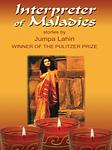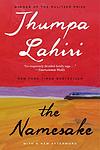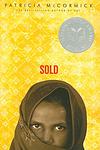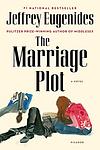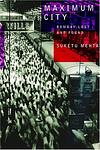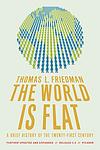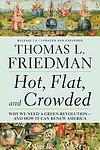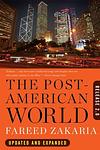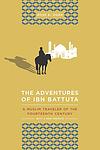The Greatest American "India" Books of All Time
Click to learn how this list is calculated.
This list represents a comprehensive and trusted collection of the greatest books. Developed through a specialized algorithm, it brings together 300 'best of' book lists to form a definitive guide to the world's most acclaimed books. For those interested in how these books are chosen, additional details can be found on the rankings page.
Genres
The "India" category for books encompasses a wide range of literature that explores the history, culture, and society of India. This includes works of fiction, non-fiction, and poetry that delve into the country's rich traditions, religions, and customs, as well as its political and economic landscape. From classic novels like "A Passage to India" to contemporary works that examine modern India, this category offers readers a diverse and fascinating glimpse into one of the world's most complex and captivating nations.
Countries
Date Range
Reading Statistics
Click the button below to see how many of these books you've read!
Download
If you're interested in downloading this list as a CSV file for use in a spreadsheet application, you can easily do so by clicking the button below. Please note that to ensure a manageable file size and faster download, the CSV will include details for only the first 500 books.
Download-
1. Interpreter of Maladies by Jhumpa Lahiri
"Interpreter of Maladies" is a collection of nine short stories, each exploring different aspects of life, love, and identity. The stories are set in both India and America, and the characters often grapple with issues of cultural identity, displacement, and the complexities of relationships. Themes like marital issues, communication breakdowns, and the struggle to fit in are prevalent throughout the stories, offering a poignant and nuanced glimpse into the human experience.
-
2. The Namesake by Jhumpa Lahiri
The novel tells the story of Gogol Ganguli, a second-generation Indian-American, who struggles with his unique name and his dual cultural identity. Born to immigrant parents from Kolkata, India, Gogol is named after the famous Russian author, Nikolai Gogol, a decision that shapes his life in unexpected ways. As he grows up, he finds himself torn between his parents' traditional Indian values and his desire to fit into mainstream American society. This internal conflict is further complicated by his relationships with women of different cultural backgrounds. The book explores themes of identity, cultural assimilation, and the immigrant experience.
-
3. The Great Railway Bazaar by Paul Theroux
"The Great Railway Bazaar" is a travelogue in which the author embarks on a four-month journey by train from London through Europe, the Middle East, the Indian subcontinent, Southeast Asia, and Siberia, and then back to Europe. The book is a vivid and insightful account of the people, cultures, landscapes, and experiences encountered during the journey, painting a unique picture of the world as seen from the perspective of a train window. The author's sharp observations and engaging storytelling make this journey as much an inner exploration as a geographical one.
-
4. Creation by Gore Vidal
The novel is a sweeping historical epic that takes readers on a journey through the ancient world, as seen through the eyes of a fictional Persian diplomat. The protagonist, who serves under King Darius and later his successor Xerxes, engages in philosophical and theological debates with some of the era's most influential figures, including Confucius, Socrates, and the Buddha. His travels and experiences provide a panoramic view of the political and cultural landscapes of the time, exploring the nature of power, belief, and the human condition. The book blends real historical events and personages with a richly imagined narrative, offering a unique perspective on a formative period in human history.
-
5. Song Of Kali by Dan Simmons
The book is a chilling tale of horror set in the labyrinthine streets of Calcutta, where an American poet journeys with his wife and infant daughter in search of a legendary poet who has reemerged with new work after years of presumed death. The city's oppressive heat and mystique envelop the family as they become entangled in a nightmarish plot involving a cult dedicated to the goddess Kali, whose followers may have sinister intentions for them. As the protagonist delves deeper into the city's dark underbelly, he is confronted with the true face of evil and must fight to save his loved ones from the clutches of a terrifying power.
-
6. Behind the Beautiful Forevers: Life, Death, and Hope in a Mumbai Undercity by Katherine Boo
This book is a gripping narrative that provides an in-depth look into the lives of residents in a Mumbai slum, focusing on their struggles and aspirations. The author paints a vivid picture of the harsh realities of poverty, corruption, and inequality, while also highlighting the resilience and hope of the inhabitants. The narrative is a powerful exploration of the complexities of modern India, revealing the stark contrast between the country's booming economy and the grim living conditions of its underprivileged citizens.
-
7. World War Z by Max Brooks
The book is an apocalyptic horror novel presented as a collection of individual accounts in the aftermath of a global pandemic that leads to a catastrophic zombie outbreak. Through interviews with survivors from various countries and walks of life, the narrative unfolds the social, political, cultural, and environmental implications of the zombie crisis, known as World War Z. The personal stories explore the widespread panic, the collapse and resurgence of governments, military strategies employed to combat the undead, and the human resilience in the face of a decimated world. The novel serves as a critique of societal responses to disasters and a commentary on the human condition.
-
8. Jasmine by Bharati Mukherjee
The novel follows the journey of a strong-willed Indian woman who, after being widowed in a tragic explosion, reinvents herself numerous times in the face of adversity. She leaves her village in Punjab for the United States, where she navigates the complexities of immigration and identity. As she moves from Florida to Manhattan to Iowa, adopting different names and personas along the way, she confronts the challenges of assimilation and the pull of her cultural heritage, all while seeking the American Dream and striving to maintain her independence and self-worth in a rapidly changing world.
-
9. May You Be The Mother Of A Hundred Sons by Elisabeth Bumiller
This book offers a poignant exploration of the lives of women in India, delving into the complexities of their roles in a society marked by stark contrasts and contradictions. Through a series of vivid narratives and personal stories, the author paints a multifaceted picture of the challenges and triumphs faced by Indian women, from the constraints imposed by traditional customs to their efforts in seeking empowerment and equality. The work reflects on themes of marriage, motherhood, and the cultural significance of bearing sons, while also examining the evolving landscape of women's rights and the impact of economic and social change in India.
-
10. Sold by Patricia McCormick
The novel follows a young Nepalese girl who lives in a poor, rural village. When her stepfather sells her into slavery in a brothel in India, she must navigate the horrors of her new life. The narrative explores her struggle for survival, her attempts to escape, and the friendships she forms with other girls in the brothel. Ultimately, the novel is a harrowing exploration of human trafficking and sexual exploitation.
-
11. The Years of Rice and Salt by Kim Stanley Robinson
The book is an alternate history novel that explores a world in which the Black Death plague of the 14th century was far more lethal to Europeans, nearly wiping them out. As a result, world history is dramatically reshaped: Islamic and Buddhist societies emerge as the dominant global powers, leading to vastly different technological, cultural, and social developments. The narrative spans several centuries, following a group of characters who are reincarnated into various lives and roles, allowing the reader to experience the evolution of this alternate world through their interconnected stories. The novel delves into themes of history, religion, technology, and human nature, all while imagining a world both familiar and strange, shaped by different forces and ideas than those that have shaped our own history.
-
12. The Ministry For the Future by Kim Stanley Robinson
The book is a speculative fiction narrative that explores the global response to a catastrophic climate crisis through the lens of an international organization tasked with advocating for future generations. Set in the near future, the story weaves together a tapestry of perspectives, from bureaucrats and activists to ordinary citizens, as they confront ecological disasters, economic upheaval, and social transformation. The organization at the heart of the novel employs a mix of diplomacy, policy, and direct action to mitigate climate change, showcasing the complexities and moral dilemmas associated with stewarding the Earth for both present and future inhabitants. The narrative grapples with themes of responsibility, sustainability, and the interconnectedness of global communities in the face of unprecedented environmental challenges.
-
13. The Marriage Plot by Jeffrey Eugenides
This novel follows the intertwined lives of three college graduates in the 1980s. The story focuses on the romantic entanglements of Madeleine Hanna, an English major who is writing her senior thesis on Jane Austen and George Eliot, and her relationships with two men: Leonard Bankhead, a charismatic but troubled biology student, and Mitchell Grammaticus, a religious studies student who is in love with Madeleine. The narrative explores the complexities of love, mental illness, faith, and the relevance of the traditional marriage plot in a modern world.
-
14. Eat, Pray, Love by Elizabeth Gilbert
The memoir chronicles a woman's journey of self-discovery and healing after a painful divorce. She spends a year traveling to three different countries, each representing a different aspect of her personal growth. In Italy, she indulges in pleasure and learns to appreciate life's simple joys. In India, she explores her spirituality and finds inner peace through meditation. In Indonesia, she seeks to balance the two extremes and ends up finding love again. Her experiences throughout the year help her regain her sense of self and happiness.
-
15. A Way In The World by V. S. Naipaul
"A Way in the World" is a narrative that blends fiction with historical analysis, presenting a series of interconnected stories that explore the themes of identity, colonialism, and the complex interplay between personal history and larger historical forces. Set primarily in the Caribbean, the book weaves together the lives of a diverse cast of characters, from ambitious politicians and struggling writers to colonial administrators and ordinary citizens, each navigating the turbulent waters of cultural and political change. Through these stories, the narrative delves into the legacies of empire and the enduring impact of colonialism on individual lives and national identities.
-
16. Maximum City: Bombay Lost and Found by Suketu Mehta
This book offers a comprehensive exploration of Mumbai (formerly known as Bombay), one of the world's largest and most complex cities. The author weaves together personal experiences, interviews and observations to paint a vivid picture of the city's diverse inhabitants and their daily lives. The narrative delves into the city’s underworld, its entertainment industry, its religious tensions, and its political landscape, providing an in-depth look at the dichotomies of wealth and poverty, modernity and tradition, and order and chaos that define Mumbai.
-
17. The End Of Poverty by Jeffrey D. Sachs
This book presents a compelling argument that extreme poverty, defined as living on less than $1 a day, can be eradicated globally by the year 2025 through targeted interventions and international cooperation. The author, an esteemed economist, draws on his extensive experience advising governments in Latin America, Eastern Europe, and Africa to outline a practical plan for achieving this goal. He emphasizes the importance of addressing the "poverty trap" that many developing countries find themselves in, where low income leads to insufficient investment in basic needs such as health, education, and infrastructure, which in turn keeps these nations in a cycle of poverty. The book advocates for a combination of increased aid, debt relief, and investment in technology and infrastructure, tailored to the specific needs of impoverished regions, to empower these communities to achieve sustainable economic growth.
-
18. The World Is Flat by Thomas L. Friedman
This book presents a compelling analysis of globalization in the early 21st century, arguing that the world has become "flat" through technological and political changes that have removed barriers to international trade and communication. The author explores how these changes have allowed individuals and companies from all over the globe to compete and collaborate in ways that were previously impossible, fundamentally altering economies, societies, and the balance of power. Through a series of anecdotes and analyses, the book examines the forces flattening the world, the implications for governments, businesses, and individuals, and the challenges and opportunities presented by this new global landscape.
-
19. The Widows Of Malabar Hill by Sujata Massey
Set in 1920s Bombay, "The Widows of Malabar Hill" follows Perveen Mistry, the city's first female lawyer, as she navigates a complex case involving the inheritance of three widows. When a wealthy Muslim man dies, leaving behind a vast estate, Perveen becomes entangled in a web of deceit, family secrets, and cultural traditions. As she unravels the truth, Perveen must confront her own personal demons and challenge societal norms to seek justice for the widows.
-
20. Hot, Flat, And Crowded by Thomas L. Friedman
This book delves into the complex interplay between global warming, globalization, and population growth, arguing that the convergence of these three forces has created a world that is 'hot, flat, and crowded.' The author emphasizes the urgent need for a green revolution, advocating for the United States to lead the way in adopting more sustainable energy practices and technologies. Through a mix of reporting, analysis, and advocacy, the book presents a compelling case for how embracing green energy not only addresses environmental challenges but also can drive economic growth and maintain the country's competitive edge in the global market.
-
21. The Post American World by Fareed Zakaria
This book explores the shifting landscape of global power, emphasizing the rise of countries like China and India, and the relative decline of American dominance in economic, political, and cultural terms. The author argues that we are transitioning into a "post-American" world, where the United States will remain a vital player but will no longer hold unrivaled supremacy. Through insightful analysis, the book examines the implications of this shift for international relations, global governance, and the global economy, advocating for a new approach to American foreign policy that embraces this multipolar reality. The narrative is both a wake-up call and a guide for navigating the complexities of the 21st century's international dynamics.
-
22. Poor Economics by Abhijit V. Banerjee, Esther Duflo
This book delves into the complex world of poverty, challenging conventional wisdom and assumptions about the economic decisions of the poor. Through rigorous analysis and empirical evidence, the authors explore how the poor make choices regarding education, health care, savings, and investments, revealing the logic behind these decisions. They argue that understanding these choices is crucial for designing effective anti-poverty policies. The book advocates for a more nuanced, bottom-up approach to economics, emphasizing the importance of specific, targeted interventions over broad, one-size-fits-all solutions. By combining detailed field research with economic theory, it provides insightful perspectives on how to empower the world's impoverished populations.
-
23. The Adventures Of Ibn Battuta by Ross E. Dunn
"The Adventures of Ibn Battuta" is a historical account that follows the journeys of the 14th-century Moroccan explorer Ibn Battuta, who traveled extensively across the Islamic world and beyond, covering parts of Africa, Asia, and Europe. The book provides a detailed narrative of his adventures, insights into the diverse cultures he encountered, and the various historical figures he met along the way. Through his travels, Ibn Battuta offers a unique perspective on the medieval world, making this book not only a recount of his life but also a valuable source for understanding the interconnectedness of different societies during that era.
-
24. The Lowland by Jhumpa Lahiri
The book chronicles the divergent paths of two Bengali brothers whose lives are marked by a tragic event during the tumultuous 1960s in Kolkata. The younger brother becomes involved in the Naxalite movement, leading to his untimely death, while the elder brother, a scientist, migrates to America, carrying the weight of grief and responsibility. The narrative spans across generations, exploring the themes of political activism, family ties, and the immigrant experience as it delves into the enduring effects of loss and the search for identity amidst the crosscurrents of history and culture.
-
25. Epic Measures by Jeremy N. Smith
This book chronicles the groundbreaking work of a visionary doctor and economist who embarked on an ambitious quest to quantify the world's health data. By meticulously gathering and analyzing global health statistics, he aimed to create a comprehensive map of human health that could guide public policy, prioritize medical research and funding, and ultimately save millions of lives. His innovative approach faced skepticism and resistance from the medical establishment but eventually transformed how health issues are approached and understood worldwide, proving the power of data in tackling some of humanity's biggest challenges.
Reading Statistics
Click the button below to see how many of these books you've read!
Download
If you're interested in downloading this list as a CSV file for use in a spreadsheet application, you can easily do so by clicking the button below. Please note that to ensure a manageable file size and faster download, the CSV will include details for only the first 500 books.
Download